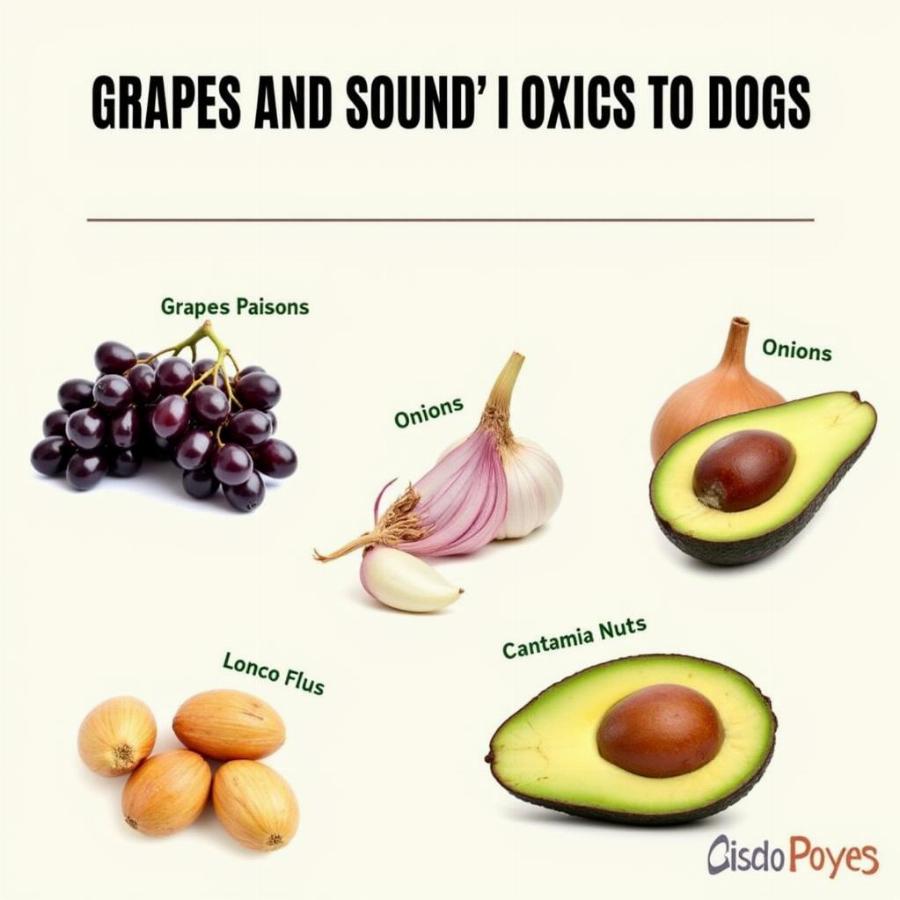Adding fresh fruits and vegetables to your dog’s diet can provide essential vitamins, minerals, and antioxidants. However, not all produce is safe for canine consumption. This comprehensive guide will explore the best healthy fruits and veggies for dogs, highlighting their benefits and potential risks, so you can make informed decisions about what to include in your furry friend’s meals.
Safe and Nutritious Fruits for Your Canine Companion
Fruits can be a delicious and healthy treat for your dog, offering a variety of vitamins and antioxidants. However, moderation is key, as the high sugar content in some fruits can lead to weight gain or digestive upset. Always introduce new fruits gradually to monitor your dog’s reaction.
- Apples: A great source of fiber and vitamin C. Remember to remove the core and seeds, as they contain cyanide which can be toxic to dogs.
- Bananas: Rich in potassium and vitamins B6 and C. Offer in moderation due to their high sugar content.
- Blueberries: Packed with antioxidants and fiber, blueberries can support your dog’s immune system and digestive health.
- Cantaloupe: A hydrating treat full of vitamins A and C. Remove the rind and seeds before serving.
- Watermelon: Another hydrating option rich in vitamins A, B6, and C. Remove the rind and seeds, as they can cause intestinal blockage.
Healthy Vegetables Your Dog Will Love
Vegetables offer a wide range of nutrients and can be a low-calorie addition to your dog’s diet. Introduce new vegetables slowly and observe your dog for any adverse reactions.
- Carrots: Crunchy and packed with vitamin A, carrots can promote healthy vision and skin. Offer them raw or cooked.
- Broccoli: A good source of vitamins C and K, broccoli should be given in moderation as it can cause gas.
- Green Beans: Low in calories and high in fiber, green beans can be a healthy snack or meal addition.
- Pumpkin: Rich in fiber and vitamins A and C, pumpkin can aid digestion. Make sure to use plain canned pumpkin, not pumpkin pie filling.
- Sweet Potatoes: A nutritious source of vitamins A and C, sweet potatoes should be cooked before serving to improve digestibility.
Fruits and Veggies to Avoid
While many fruits and vegetables are beneficial for dogs, some are toxic and should be avoided entirely.
- Grapes and Raisins: These can cause kidney failure in dogs, even in small amounts.
- Onions and Garlic: These can damage a dog’s red blood cells and lead to anemia.
- Avocado: Contains persin, which can cause vomiting and diarrhea in dogs.
- Macadamia Nuts: Can cause weakness, tremors, and vomiting.
- Xylitol (artificial sweetener): Can cause liver failure and even death.
 Trái cây và rau củ nguy hiểm cho chó
Trái cây và rau củ nguy hiểm cho chó
What if my dog eats something they shouldn’t?
If your dog ingests a toxic fruit or vegetable, contact your veterinarian immediately. Quick action is crucial in these situations.
How can I incorporate fruits and vegetables into my dog’s diet?
Start by offering small amounts of safe fruits and vegetables as treats or mixing them with their regular food. You can also try pureeing vegetables and adding them to their meals.
Are there any specific fruits and vegetables that are particularly good for senior dogs?
Blueberries and pumpkin are particularly beneficial for senior dogs due to their antioxidant and digestive properties.
Conclusion
Incorporating healthy fruits and veggies for dogs into their diet can provide valuable nutrients and enhance their overall well-being. Remember to introduce new foods gradually, avoid toxic options, and consult with your veterinarian if you have any concerns. By following these guidelines, you can ensure your furry friend enjoys the benefits of a balanced and nutritious diet.
FAQs
- Can I give my dog fruit every day? While fruit can be a healthy treat, it should be given in moderation due to its sugar content.
- What are the signs of an allergic reaction to fruits or vegetables in dogs? Signs can include itching, skin redness, vomiting, and diarrhea.
- How much fruit and vegetables should I give my dog? Start with small amounts and gradually increase as tolerated. Fruits and vegetables should not make up the majority of your dog’s diet.
- Can puppies eat fruits and vegetables? Yes, but introduce them slowly and in small quantities, just as you would with adult dogs.
- Are frozen fruits and vegetables safe for dogs? Yes, frozen fruits and vegetables can be a convenient and healthy option. Make sure they are thawed before serving.
- Can I give my dog fruit and vegetable scraps? While some scraps are okay, avoid giving your dog the core and seeds of apples and the rind and seeds of melons, as these can be toxic.
- My dog doesn’t seem to like fruits and vegetables. What should I do? Try different varieties or preparations. Some dogs prefer their vegetables cooked or pureed.
You might also be interested in these articles:
Beaut Dogs is your one-stop resource for all things related to dog care, providing expert advice and valuable insights into the world of canine companionship. From breed information to nutrition and training tips, Beaut Dogs is committed to helping you provide the best possible care for your beloved pet. When you need expert advice or assistance, don’t hesitate to contact us via Email: [email protected] for detailed and accurate answers from Beaut Dogs.